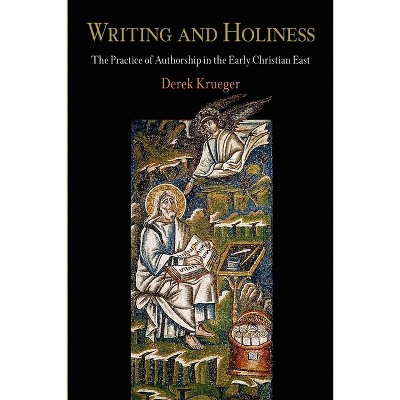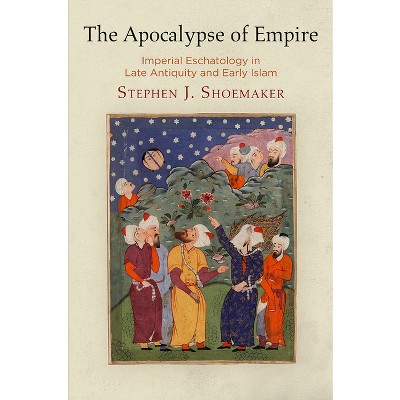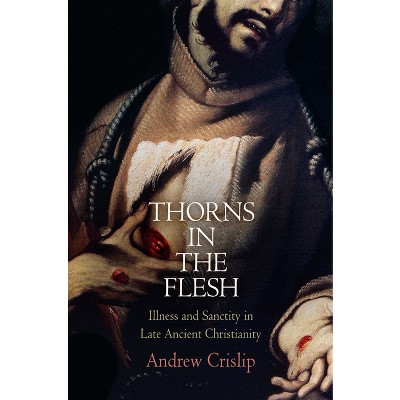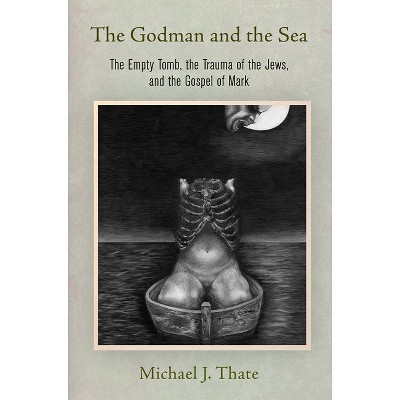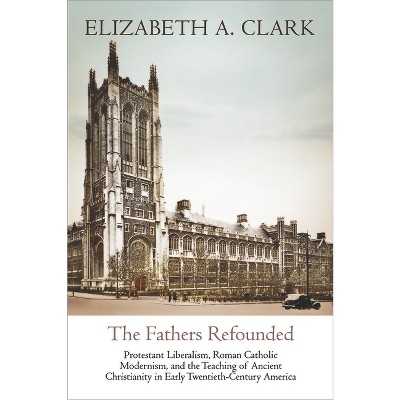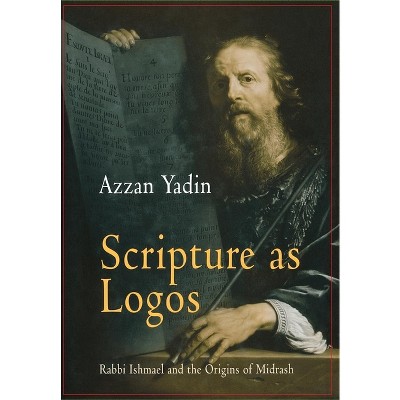Death of the Desert - (Divinations: Rereading Late Ancient Religion) by Christine Luckritz Marquis (Hardcover)

About this item
Highlights
- In the late fourth century, the world of Christianity was torn apart by debate over the teachings of the third-century theologian Origen and his positions on the incorporeality of God.
- About the Author: Christine Luckritz Marquis is Associate Professor of Church History at Union Presbyterian Seminary.
- 224 Pages
- Religion + Beliefs, Christianity
- Series Name: Divinations: Rereading Late Ancient Religion
Description
About the Book
"In the late fourth century, the world of Christianity was torn apart by debate over the teachings of the third-century theologian Origen and his positions on the incorporeality of God. In the year 400, Archbishop Theophilus of Alexandria convened a council declaring Origen's later followers as heretics. Shortly thereafter, he banished the so-called "Tall Brothers," four Origenist monks who led monastic communities in the western Egyptian Desert, along with hundreds of their brethren. In Death of the Desert, Christine Luckritz Marquis offers a fresh examination of this critical event in Christian history and brings into dialogue narrative strands that have largely been separated in the scholarly tradition"--Book Synopsis
In the late fourth century, the world of Christianity was torn apart by debate over the teachings of the third-century theologian Origen and his positions on the incorporeality of God. In the year 400, Archbishop Theophilus of Alexandria convened a council declaring Origen's later followers as heretics. Shortly thereafter, Theophilus banished the so-called Tall Brothers, four Origenist monks who led monastic communities in the western Egyptian desert, along with hundreds of their brethren. In some accounts, Theophilus leads a violent group of drunken youths and enslaved Ethiopians in sacking and desecrating the monastery; in others, he justly exercises his episcopal duties. In some versions, Theophilus' violent actions effectively bring the Golden Age of desert monasticism to an end; in others, he has shown proper respect for the desert fathers, whose life of asceticism is subsequently destroyed by bands of barbarian marauders. For some, the desert came to be inextricably connected to violence and trauma, while for others, it became a site of nostalgic recollection.
Which of these narratives subsequent generations believed depended in good part on the sources they were reading. In Death of the Desert, Christine Luckritz Marquis offers a fresh examination of this critical juncture in Christian history and brings into dialogue narrative strands that have largely been separated in the scholarly tradition. She takes the violence perpetrated by Theophilus as a turning point for desert monasticism and considers how monks became involved in acts of violence and how that violence came back to haunt them. More broadly, her careful attention to the dynamic relations between memory practices, the rhetorical constructions of place, racialized discourse, and language and deeds of violence speak to us in our own time.Review Quotes
"Utilizing a wide range of scholarship and attending to the details of each of the ancient sources--including questions of origin, identification, content, circulation, reception history, and scholarly treatment--this book offers a multi-layered, highly nuanced interpretation of how violence functions in relation to power, identity, holiness, and belonging. The resulting complexity of the category of violence overturns a number of longstanding assumptions and ideas. This book demonstrates clearly and convincingly that violence played a notable role in the identity formation and memory construction of Egyptian ascetic life and practice in late antiquity."-- "Interpretation"
"Luckritz Marquis innovates is her focus on violence for analyzing and approaching monastic thought. She has highlighted how scholars often have taken for granted a rhetoric of violence deeply entrenched in monastic literature...[W]e all would do well to remember that monks who dwelled in the desert thought of themselves as warriors wielding weaponry of prayer and unflinching belief in God, and they normalized violence against demons, heterodox believers, and even their own bodies, as a part of their ascetic experience. Luckritz Marquis reminds us of this fact."-- "Church History"
About the Author
Christine Luckritz Marquis is Associate Professor of Church History at Union Presbyterian Seminary.





